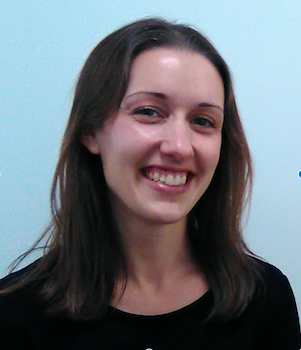We talk with Dr. Mary Doherty and Dr. Sebastian Shaw of Autistic Doctors International about how undetected barriers to health care for autistic people can lead to delayed care, serious complications, and sometimes even fatalities.
Tag: health care
Something that would make my life easier would be accessible virtual health care; in other
words, NOT by phone.
Shannon Rosa from Thinking Person’s Guide to Autism and Corina Becker from Autism Women’s Network interviewed Laura Crane from CRAE, the UK-based Centre for Research in Autism and Education about her work in supporting best practices in health care and education for autistic people, and also demonstrating that Autistics, children specifically, can be reliable witnesses during criminal investigations. Laura Crane | Photo: CRAE [image: Smiling white woman with long brown hair.] Shannon Rosa: Why don’t you start by telling us a little bit about the work that you’re doing for CRAE, because it seems like you’re involved in so many things. Laura Crane: My research focuses on two main areas. The first is looking at how we can support autistic children and adults within the criminal and family justice systems. A lot of that work has come from police officers and barristers and other legal professionals assuming that autistic children and…
Photo © ILO | Flickr/Creative Commons [image: Doctor giving a heart exam to a patient on a hospital bed. Both people are East Asian.] Kate Ryan Why I am Writing This I am a professional disability advocate in my mid thirties. I am also autistic and have various learning disabilities/mental health diagnoses. I have always been very lucky in that I live in Massachusetts and so have been able to access healthcare despite the fact that I am very low income. I was a personal care aide for many years and due to this I developed back problems. In the spring of 2016, they became significantly worse. I tried many, many therapies and medications, including alternative ones. I was eventually diagnosed with an extruded disc and had surgery in January, 2017. Although my surgery was supposed to be a routine day surgery, and all of my health care practitioners knew…
Sam Crane [image: A smiling white person with ear- length brown hair, wearing a black suit jacket and a white pearl necklace.] What is the IACC, or Interagency Autism Coordinating Committee, and what does it do? We talked with newly seated IACC member Sam Crane about her role, how the IACC works, its goals, why it needs to broaden its focus beyond causation — and her experience as one of the committee’s autistic minority. The next IACC meeting is scheduled for Tuesday, January 12, and will be webcast live. Community members who would like to submit written comments for the meeting should do so by Tuesday, January 5th. —- TPGA: How would you describe the IACC to someone who isn’t aware of what the IACC is, and what it does, beyond the standard — rather stuffy — description? Sam Crane: The Interagency Autism Coordinating Committee is the government’s attempt to…
Come October 1, Americans will be able to start enrolling in Affordable Care Act (ACA, “ObamaCare”) health insurance programs, which will then be implemented January 1st. Since health care policy is so complex, we spoke with The Autistic Self-Advocacy Network‘s Ari Ne’eman about specific advantages, opportunities, and sticking points of the ACA for People with Disabilities. In addition, The Autistic Self Advocacy Network has just released a policy brief on the impact the Affordable Care Act is likely to have on people with intellectual and developmental disabilities and what advocates can do to encourage state and federal policymakers to make the most of the law. TPGA: What are ASAN’s primary concerns about how the ACA will affect people with disabilities? Is there a significant component to how the ACA will affect people with intellectual & developmental disabilities? Ari Ne’eman: We view the Affordable Care Act as a significant opportunity for…
AASPIRE www.aaspire.org Researchers with the Academic Autistic Spectrum Partnership in Research and Education (AASPIRE), have found that autistic adults, who represent roughly 1 percent of the adult population in the U.S., report significantly worse health care experiences than their non-autistic peers. The study included an online survey of 209 autistic adults and 228 non-autistic adults. Autistic adults reported more unmet healthcare needs, more frequent use of the Emergency Department, and less use of preventative services like Pap smears. They also reported lower satisfaction with provider communication, and less comfort in navigating the healthcare system or managing their health. AASPIRE Co-Director and principle investigator of the study, Dr. Christina Nicolaidis, said, “As a primary care provider, I know that our healthcare system is not always set up to offer high quality care to adults on the autism spectrum. However, I was saddened to see how large the disparities were. We really…
Interview with Dr. Gil Tippy Clinical Director of The Rebecca School, Manhattan, New York www.drgiltippy.com How are the DSM criteria for autism changing? From the official site: “A single spectrum disorder [i.e., folding in Asperger Disorder and PDD-NOS] is a better reflection of the state of knowledge about pathology and clinical presentation; previously, the criteria were equivalent to trying to “cleave meatloaf at the joints.” “Three domains become two: 1) Social/communication deficits 2) Fixated interests and repetitive behaviors “[because] Deficits in communication and social behaviors are inseparable and more accurately considered as a single set of symptoms with contextual and environmental specificities.” We spoke with Dr. Tippy about what the proposed revisions to the DSM 5 will mean for Autistics, autism families, and autism professionals. Dr. Tippy also outlined actions everyone in the autism communities can take to prevent these changes from cutting off critical autism services and support. Why…





